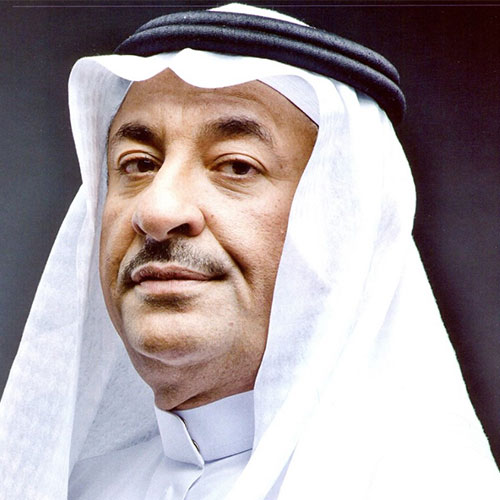Abdulaziz Al Hamwah is a well-established professional, an industrial developer, and consultant in the Kingdom of Saudi Arabia. Today he has his own network of high-net-worth individuals, entrepreneurs and institutional partners focusing on Mining Services, Metals Processing, Chemicals/Petrochemicals, and Energy sectors in the Kingdom, targeted to become multi-billion-dollar industries. He also has a worldwide list of clients for his Consultancy and Business Development projects covering USA, Europe, and Asia.
His career began when he joined a Citibank affiliate in the USA as a Trainee , immediately following his completion of a Bachelors degree in Electrical Engineering in Michigan State University in 1982. For the next 20 years, he progressed in Saudi American Bank (“SAMBA”), the former Saudi affiliate of Citibank-USA (now renamed “Samba Financial Group”) then rising to become one of the few Senior Credit Officers in Saudi Arabia as well as Country Group Head of Energy, Petrochemicals, Shipping, Government/Public Sector & International Financial Institutions/Syndications & Agency (EPSFI). During this period, he approved credit facilities to over 100 projects and disbursed billion-dollar worth of finances.
Presently, he is the co-founder, Vice-Chairman and Chief Executive Officer of Modern Industrial Investment Holding Group (“MIG”) and its sister companies, which have identical ownership and management structures: Modern Chemicals Company Ltd. (MCC), Modern Mining Holding Company Ltd. (MMH), Modern Steel Company Ltd. (MSC) and Modern Central Industries Company Ltd. (MCIC), all based in Riyadh, Saudi Arabia (collectively the “Modern Group”); also as Vice Chairman and CEO of Modern Chemicals and Services Company Ltd. (MCS), which is a joint venture company formed between MCC and EPC Groupe of France. There are several other JV companies now under formation.
In 2013, because of his hard work and professional management, the Arabian Business, a highly respected rating firm in the Middle East, conferred on him the “CEO of the Year Award for International Business”.
Apart from the Modern Group, Abdulaziz is also the Chairman of the Board of Arabian Shield Resources Company, a Hong Kong based mining company that is engaged in the acquisition, exploration, and development of world-class precious, base, and battery metal assets in the Arabian-Nubian Shield and surrounding prospective regions with emphasis on Saudi Arabia and Oman.
He is also an Independent Director for InterContinental Energy, a company that is focused on the development of large-scale renewable energy projects and long-distance transmission. It is one of the proponents of the Asian Renewable Hub, a 6-gigawatt wind and solar hybrid power plant in Western Australia’s East Pilbara region that will export its electricity production to Southeast Asia via subsea electrical cables. A similar project is also being developed in Oman to supply energy needs in the Gulf and in the MENA region as well.
Since 2003, he engaged in efforts to set-up the new company and to find a suitable international JV partner by negotiating with similar industry leaders in US, Europe, Far East, Asia and Australia. It took 2 years to not only establish the company but also deal with several bureaucratic layers of the government to get the required clearances from more than 10 ministries to secure large lands required for production and security requirements of more than 4 million sqm. All objectives were successfully achieved.
Earlier for 21 years, he was associated with the former Saudi affiliate of Citibank-USA. He occupied a senior position as Senior Credit Officer, and Business Group Head responsible for Energy, Petrochemicals, Shipping, Government/Public Sector, Financial Institutions and Syndication/Agency, thus handled financing transactions involving several billions of US dollars for the bank.
















